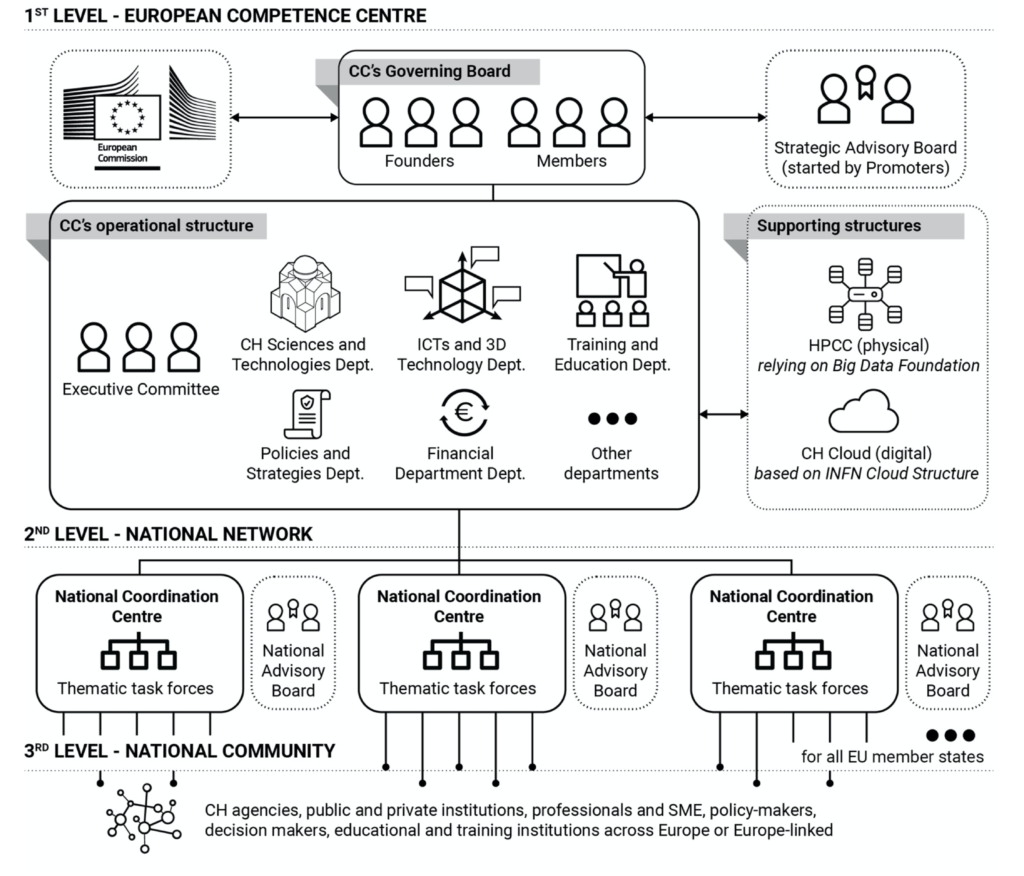Designing a European Competence Centre for cultural heritage is not straightforward. Apart from the complexity of its tasks, described in the section What is a Competence Centre [linked to the page], it needs to adapt to many different conditions: how cultural heritage is managed, what are the risks that may affect its conservation and preserve it from degradation, how it may be valorised, all differ from place to place. This is why we have conceived a two-tier organisation, illustrated in the picture below.

The global infrastructure consists of a central hub, the European Competence Centre, and a network of national or regional Coordination Offices/national Competence Centres tailored on the needs of each country or region. 4CH is in charge of defining the features of the European Centre and of outlining the common features of the national/regional ones, which will be adapted to the local specific legal, administrative, financial and managerial) conditions. In the picture, the Centre activities and the related departments are just exemplified, and they will be more precisely defined during the design phase. At present we think that the European Centre is in charge of collecting and making available the necessary software tools – including the training – and manages the joint knowledge base, i.e. the system where the knowledge about heritage assets is stored and managed. It will also provide advice about common legal and financial issues, while their localization is entrusted to national centres, which will be also in charge of managing the versioning of the training (e.g. the translation of the material in the local language), the management of or the connection to local data repositories, and so forth.
The attitude of 4CH towards the design process is inclusive: it will not be carried out by 4CH in insulation. It is our intention to have a wide consultation of all relevant stakeholders to appreciate their needs and be able to identify the requirements for the Centre characteristics. The final design will then undergo another round of consultation to get feedback from the community.
The project has moreover a built-in voice of the stakeholders community in its Strategic Advisory Board, a college of experts coming from international heritage organizations, the academy and research, major national institutions, and associations and organizations in charge of heritage. It will continuously advice the project during the design process as well as afterwards, in the implementation phase.
We anticipate that at the end of the project in 2024, the European Competence Centre may be already set up and has started working, and some national centres or coordination offices have also been developed.
